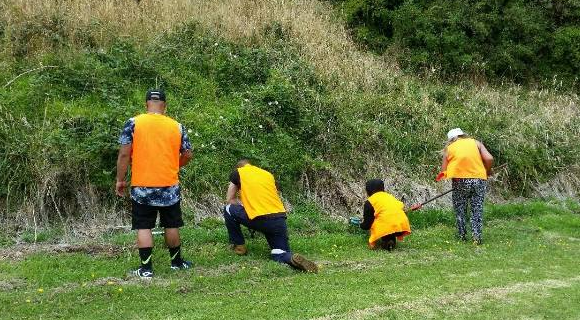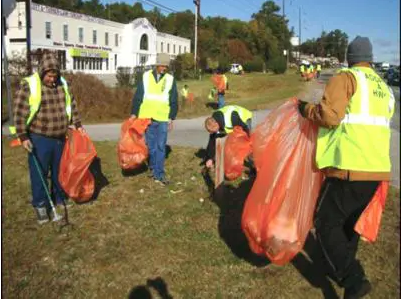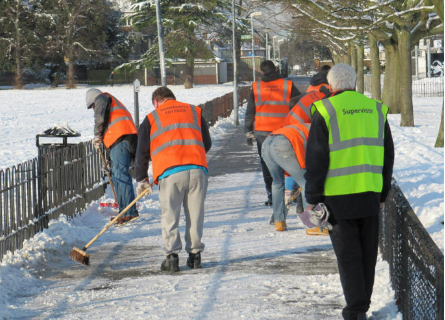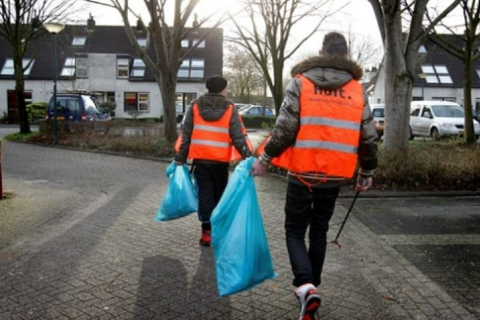If you are convicted of a crime by a court, but you are not sent to prison, you may get the chance to perform the Community Service by doing unpaid work in your local community. It can be mentioned as an alternative to pay for the offense that you have committed.
Even though it is unpaid work, about the working time, it has been set by the court on how many hours you can do it in a day. If you are wondering how long an offender can do their Community Service per day, let’s dive into our post to get information about it!

How Many Hours of Community Service Can You Do in a Day?
It is known that you do unpaid work in the community to pay something back for the offense you have committed. Community Service also gives you a chance to take responsibility for your offending and also learn new skills and work habits.
Talking about how many hours of community service you can do unpaid work in a day, you will be required to perform between 40 and 400 hours of community work. Generally, you can only work up to 10 hours per day or up to 40 hours in any one week. In some cases, offenders may be required to perform up to 8 hours per day or up to 50 hours in one week. If you put 8 hours per day in community service, it may take about 6-7 days to complete the community service.
The number of hours are definitely determined by the judge in court. The offenders are encouraged to complete their hours as quickly as possible. In general, the offenders need to complete at least 100 hours every six months or the remaining balance of their sentence. The offenders can normally continue with their regular jobs, while they are completing these hours.
What Types of Community Work Are Performed by Offenders?
There are so many types of community work that can be performed by offenders, including:
- Cleaning beaches, bush tracks and community parks.
- Helping food banks, school and marae
- Working with their local council and their beautification projects such as the graffiti removal.
- Decorating public places and building such as a community centre.
If you are sentenced to 80 or more hours of community work, the court will be able to authorise the conversion of up to 20% of community work hours to be spent learning basic work and living skills.
You will commonly work in your local area that will be managed by a Community Payback Supervisor. You should wear a high visibility orange vest, while working. Generally, you will need to work 3 or 4 days each week if you are unemployed. In this case, the Community Payback work will be set outside your working hours if you have a job, for example weekends or evenings.
The judges will typically also require the offender to work over and above program participation, including:
- Sponsor or counsel other substance abusers
- Lead treatment meetings or programs at the facility
- Organize or set up treatment meetings
- Pay restitution to harmed parties
So far, the community benefits since the judge believes the offender is likely to continue to commit crimes with appropriate substance-abuse treatment.
Requirements of Community Service
The primary requirement of any community service sentence is that it benefits the community. Therefore, a judge probably orders a bank executive who misappropriates bank funds to volunteer for a community organization and donate funds to that organization.
The judge may select this sentence as an alternative to a term of imprisonment and in-prison restitution programs. The donation of charitable services in a public forum benefits the community in two ways, including:
- To serve as a deterrent to other potential offenders
- To provide a symbolic and practical form of restitution for the harm the defendant caused.
It’s important to note, the Community Service cannot be ordered as a stand-alone sentence that can be available for many types of crimes. In fact, the Community Service may be a required condition of punishment for crimes like damaging or looting property. However, Community Service is basically unavailable for serious offenses punishable by life of death imprisonment.
How An Offender Is Placed in Community Work?
In the case of determining what work the offender will do, the judge will take into account:
- The offense that the person has committed
- Their personal circumstance
- Their skills or needs
Well, the community work is either performed in a work party that is supervised by community probation staff called a centre placement or on an individual basis through placement at an agency.
You probably will get a community service if:
- This is the first time you have committed a crime
- The court thinks you are likely to stop committing crime than if you go to prison
- You have a mental health condition which affects your behaviour
Placements of Community Work
For centre placements, community probation staff will be responsible to find suitable work. Centre placements here are created by work parties that can have up to 10 offenders. It can undertake a wide range of projects within the community. They can also conduct projects that are sponsored by eligible community work agencies.
There are particular rules that the offenders need to follow when entering a centre placement, such as arriving on time, bringing food and working hard. If the work is completed for an agency, your work may be supervised by someone from the agency. Probation officers will check with the agency that the offender has completed the right number of hours and completed the work to the required standard.
If an offender does not follow the rules, the probation officers can call the non-compliance and treat it very seriously. So, it may mean an offender gets:
- An internal sanction, for instance a warning
- A formal breach action that may result in a further condition, imprisonment or another sentence.
- An application to the court to annul the sentence and replace it with a more restrictive sentence.

A bookworm and researcher especially related to law and citizenship education. I spend time every day in front of the internet and the campus library.





